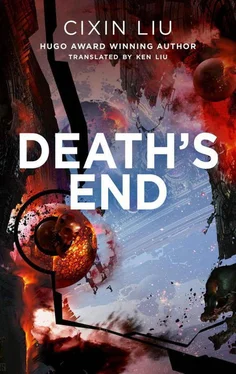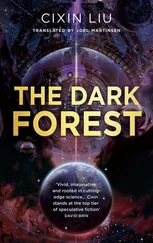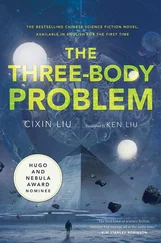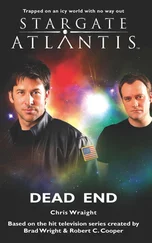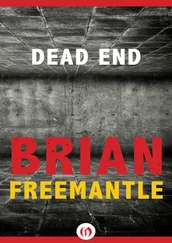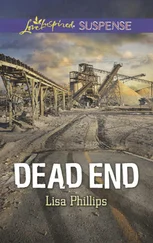On the way back to Warburton, Cheng Xin saw the densely packed shelter-houses stretching to the horizon, saw the busy crowd laboring in the cracks between the shelter-houses. Suddenly, she felt her vision shift, as though she were watching everything from somewhere outside the world, and everything she saw turned into a writhing nest of ants. A nameless terror gripped her and the bright Australian sunlight seemed as cold as rain in winter.
—————
Three months after the start of the Great Resettlement, more than a billion people had been relocated to Australia. Simultaneously, the governments of the nations of the world began to relocate to large Australian cities. The UN moved its headquarters to Sydney. Each government directed the resettlement of its own citizens, with the UN Resettlement Commission coordinating the efforts. In their new land, the migrants gathered into districts based on their nation of origin, and Australia became a miniature replica of the whole Earth. Other than the names of the largest cities, old place names were abandoned. Now “New York,” “Tokyo,” and “Shanghai” were nothing more than refugee camps full of basic shelter-houses.
No one had any experience in dealing with resettlement at such a large scale, either in the national governments or the UN, and many difficulties and dangers soon surfaced.
First, there was the problem of shelter. Leaders soon realized that even if all the construction materials in the world were shipped to Australia, and per capita space were limited to the dimensions of a bed, not even one-fifth of the final total population would have a roof over their heads. By the time five hundred million migrants were in Australia, there was no more material for building shelter-houses. They had to resort to erecting large tents, each of which was the size of a stadium and capable of housing more than ten thousand. But under such poor living and sanitation conditions, epidemics were a constant threat.
There was also the shortage of food. The agricultural factories in Australia were far from sufficient to satisfy the needs of the population, and it was necessary to transport food from across the world. As the population on the continent increased, the distribution of food became more complex and subject to more delays.
But the greatest danger was the prospect of loss of social order. In the resettlement zones, the hyper-information society disappeared. Newcomers poked the walls, bedside stands, or even their own clothes until they realized that everything was dead, un-networked. Even basic communications could not be guaranteed. People could obtain news about the world only through very limited channels. For a population used to a super-networked world full of information, it was as if they had all gone blind. Modern governments lost all their techniques for mass communication and leadership, and were ignorant of how to maintain order in a massively overcrowded society.
—————
Simultaneously, resettlement was also proceeding in space.
At the end of the Deterrence Era, about 1.5 million people were living in space. About half a million spacers belonged to Earth International, living in space stations and space cities orbiting the Earth and bases on the moon. The rest belonged to the Solar System Fleet and were distributed between bases on Mars and around Jupiter, as well as warships patrolling the Solar System.
The spacers who belonged to Earth International mostly lived below the orbit of the moon. They had no choice but to return to the Earth and migrate to Australia.
The rest moved to the Martian base, which Trisolaris had designated as the second human reservation.
After the Doomsday Battle, the Solar System Fleet had never returned to its former size. Even at the end of the Deterrence Era, the fleet had barely more than one hundred stellar-class warships. Though technology had continued to improve, the maximum speed of the ships never increased, as fusion propulsion had already been pushed to the limit. The overwhelming advantage the Trisolar ships held was not only their ability to reach lightspeed, but, more terrifyingly, their ability to leap into lightspeed without a prolonged process of acceleration. In order to reach even 15 percent of lightspeed, human ships had to accelerate for a year, taking into account fuel consumption rates and the need to reserve fuel for the return voyage. Compared to Trisolaran ships, Earth ships were slow as snails.
When deterrence was dismantled, the stellar-class warships of the Solar System Fleet had a chance to escape into deep space. If the hundred-plus ships had sped away from the Solar System in different directions at maximum power, the eight droplets in the Solar System could not have caught them all. But not a single ship chose to do so; all obeyed Sophon and returned to Mars orbit. The reason for their obedience was simple: Resettlement on Mars was not like settling in Australia on Earth. Within the sealed habitat of the Martian base, a population of one million could maintain a comfortable, civilized existence. The base had been designed to accommodate the long-term needs of such a population. This was, without a doubt, superior to wandering deep space for the rest of their lives.
Trisolaris remained very wary of the humans on Mars. The two droplets recalled from the Kuiper Belt spent most of their time patrolling the space above the Martian city. Unlike the resettlement process on the surface of the Earth, although the Solar System Fleet had essentially been disarmed, people living on Mars still had access to modern technology—required for maintaining the habitability of the city. But the people living on Mars dared not engage in any adventures such as building a gravitational wave transmitter. The sophons certainly would have detected a large-scale venture like that, and people hadn’t forgotten the terror of the Doomsday Battle. The Martian base was as fragile as an eggshell, and the depressurization caused by a single droplet impact would have meant complete disaster.
The space resettlement process was completed in three months. Other than the Martian base, there was no more human presence in space in the Solar System, save for empty cities and ships drifting in orbit around the Earth, Mars, Jupiter, and through the asteroid belt. They seemed to form a silent, metallic graveyard, where humankind’s glory and dreams were buried.
—————
From the safety of Fraisse’s house, Cheng Xin could only find out the situation in the larger world through TV. One day, she saw a live broadcast from a food distribution center. The holographic broadcast made her feel as if she were right there. The technology required ultra-broadband connections and was reserved for extremely important news these days. Most news was broadcast via simple 2-D.
The distribution center was located in Carnegie, on the edge of the desert. A gigantic tent appeared in the holographic display, like a broken half of an egg dropped in the desert with people spilling out of it like albumen. The crowd was rushing out because a new shipment of food had just arrived. Two flying transports, small but powerful, dangled a huge cube of packed food in nets.
After the first transport gently set down its cargo, the crowd surged like a flood from a burst dam and quickly overwhelmed the food pile. The security barrier formed by a few dozen soldiers collapsed at once, and the few food distribution workers climbed back into the hovering transport in terror. The pile of food disappeared into the crowd like a snowball thrown into muddy waters.
The lens zoomed in. People were now snatching food from those who had grabbed it from the pile. The bags of food, like rice grains in a swarm of ants, were quickly torn apart, and the mob fought over whatever tumbled out. The second transport deposited another pile in an empty space a bit farther away. This time, there were no soldiers to provide security at all, and the distribution workers didn’t dare get out of the plane. The crowd swarmed this new pile like iron shavings toward a magnet and quickly covered it.
Читать дальше
